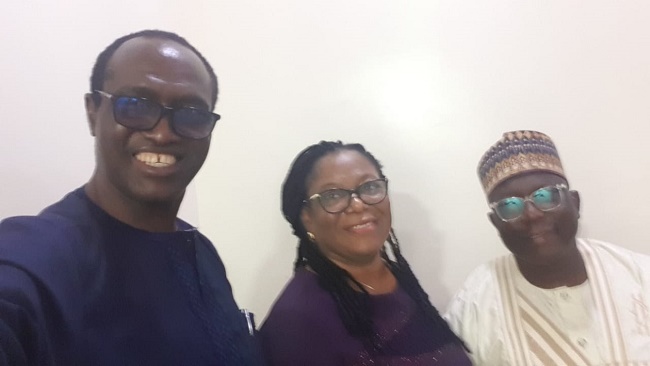A group of stakeholders that met remotely on Friday, August 12, 2022, to explore issues related to the nation’s Long-Term Low Emissions Development Strategy (LT-LEDS) has been shedding some light on the initiative.

Themed: “Understanding the Nigeria Long-term Vision 2050 (LTV 2050) and the elaboration of the Long-Term Low Emissions Development Strategy (LT-LEDS)”, the forum was aimed at providing balanced and objective information to assist experts in understanding the scope of Nigeria’s LT-LEDS elaborations.
In a presentation, the National Coordinator of Nigeria’s LT-LEDS, Dr. Eugene Itua, disclosed that the LT-LEDS, also referred to as the long-term strategy (LTS), is now being elaborated in order to achieve low-carbon/decarbonisation and climate-resilient societies in Nigeria.
He added that this is being done under the guidance of the Department of Climate Change (DCC) of the Federal Ministry of Environment (FMENv) with the support of the 2050 Pathways Platform, and coordinated by Natural Eco Capital, with the Deep Decarbonisation Pathways (DDP) Project Team leading the modelling aspect.
Itua listed the five work packages of the LTS elaboration to include: Governance, Inter-Ministerial Coordination, and Project Management; Quantitative Assessments; Stakeholder Engagement; Innovative Options for LTS Implementation; and, LTS Drafting and Validation.
He stated that while a Steering Committee would on one hand give the political and strategic steer to the project, the Technical Committee would, on the other hand, provide the technical directions for the LTS elaboration, facilitating data collection by the consultants, and ensuring the work is tailored to the needs of respective ministries.
“For a Nigerian-driven and owned long-term strategy anchored on the nation’s economic, geographic, and social circumstances, contributions are expected from various stakeholders and experts,” Dr Itua told the audience, adding:
“This process is anticipated to help identify the socioeconomic impacts of the expected transition as would have been set up in the LTS framework for a more citizen-friendly implementation.”
He appreciated their readiness to support in bringing out ideas on how best to mainstream low carbon and resilient economy into national development, as well as an interests to see the development of a robust LTS.
Director, Department of Climate Change, Dr. Iniobong Abiola-Awe, while delivering a welcome address, highlighted importance of the meeting, and thanked participants for attending meeting, which is the second in the series of engagement of stakeholders.
Director General, National Council on Climate Change, Dr. Salisu Dahiru, highlighted the importance of the task/gathering and awareness creation, as well as that of inputs of stakeholders toward presenting a report at COP27.
While emphasising the importance of this task to Nigeria meeting its climate change and Nationally Determined Contributions (NDCs) commitments, he suggested the need to have physical meetings of the stakeholders to dive deeply for parallel discussion and engagement.
He underscored the need to simplify the technical language for better assimilation, as well as the need for development of road map with series of activities leading to COP27.
Prof. Chukwumerije Okereke, Lead, Nigeria Deep Decarbonisation Pathways (DDP) Project and the Director, Centre for Climate Change and Development (CCCD), Alex Ekwueme Federal University, Ndufu Alike, spoke on “The LTS Modelling: Scenarios building and modelling”.
While stating that models help us to monitor the performance of the project, he pointed out that the long-term Vison 2050 implies that, by 2050, Nigeria will achieve 50% emission reduction and will attain net-zero emission by the year 2100.
“But the president of Nigeria announced net-zero emission by 2060 in Glasgow based on ETP, which only focuses on energy and may not be realistic,” he said.
Dr Peter Tarfa, erstwhile Director, Department of Climate Change, emphasised the importance of leadership and the importance of Nigeria to have a roadmap to Net-Zero, even as he underlined the need to take a sectoral approach especially in goal setting.
He noted that periodic performance monitoring and evaluation is important, and that the need for emission quantification is key.
Climate change expert and Natural Eco Capital LTS Elaboration Analyst, Prof. Olukayode Oladipo, said: “We have no choice as a nation but to work towards Net-Zero. It is important that we work together as a team. We will work in groups/sectors to be able to make better inputs, and it is important that all team members contribute and share ideas/solutions.”
By Michael Simire
